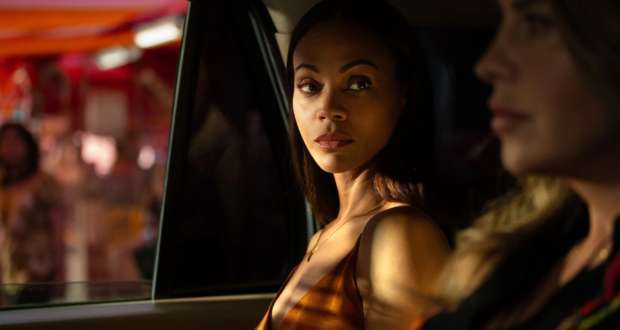This is an attack not just on Paris, it’s an attack not just on the people of France, but this is an attack on all of humanity and the universal values that we share.” —President Obama, shortly after the Paris attacks
After the terrorist attacks in Paris on Friday, November 13, something over a hundred unfortunate people were killed, and their unfortunate loved ones are condemned to go on without them, and the whole unfortunate city of Paris is in fear and shocked, the country of France wounded, the global community in disarray, and all who suffered from this tragedy are left in mourning. No matter who is behind it, or how this affects the current world discourse, there is no getting those lives back, no undoing the wrong, and it is so painful to realize this.
I work in a traditional French restaurant in Manhattan, which is often peopled by French transplants living in New York City, and my good friend is French, and his family, his friends, a large part of his world is France. Everyone should be hurting today, ready to reflect, to identify with, to sympathize with, to feel the pain of the people of France, of the French community. But it is Paris, France, and all those people living there who are hurting. The Movie Blog hurts and mourns with them.
Those New Wavers out of France, those great thinkers, and critics, and filmmakers, they helped define what it is about American cinema that made it so strong, and what about moviemaking made it such an essential art form. France should hold a special place in the heart of any movie lover. And to show some appreciation for France, for French culture, for French people, we could only turn to one place: Cinema. Here is a list of some of the best French films I’ve ever seen, knowing I’ve seen plenty and there’s plenty I have yet to see. Please, if I have missed one of your favorites, or if you just want to share a word, I urge you to write in the comment section below.
We appreciate French film. We appreciate French culture. Our hearts and our minds are with the people.
Le Million, René Clair, 1931–a beautiful musical with a comedic core
Boudu Saved from Drowning, Jean Renoir, 1932–A wandering drunk isn’t at all the saddest character
Night at the Crossroads, Jean Renoir, 1932–all atmosphere, nothing like it
Zero for Conduct, Jean Vigo, 1933–captures the mayhem of adolescence
L’Atalante, Jean Vigo, 1934–a true gem
La Grande Illusion, Jean Renoir, 1937–The scene where they sing “La Marseillaise”
The Rules of the Game, Jean Renoir, 1939–So much happening, all of it amazing
La Belle et la Bête, Jean Cocteau, 1946–a fairytale with a surreal and subtle tone
Orpheus, Jean Cocteau, 1950–A poet in the underworld
M. Hulot’s Holiday, Jacques Tati, 1953–Sounds but few voices, and brilliant comedy
The Wages of Fear, Henri-Georges Clouzot, 1953–Ridiculously intense, ridiculously ridiculous
Les Diaboliques, Henri-Georges Clouzot, 1955–Beat Hitchcock to it
The 400 Blows, Francois Truffaut, 1959–An all-timer with the all-time final shot
Hiroshima Mon Amour, Alain Resnais, 1959–Outrageous (in every sense) debut film
Breathless, Jean Luc Godard, 1960–Defines the powers of cinema
Eyes Without a Face, Georges Franju, 1960–Singularly scary and downright awesome
Les Bonnes Femmes, Claude Chabrol, 1960–Chabrol….
Shoot the Pianist, Francois Truffaut, 1960–Dark fun
Last Year at Marienbad, Alain Resnais, 1961–A dream you can’t make sense of, a dream you are dying to revisit again and again
Vivre Sa Vie, Jean Luc Godard, 1962–One of his “straightest” films
Contempt, Jean Luc Godard, 1963–The passion of hate
Ophélia, Claude Chabrol, 1963–Chabrol!
The Bakery Girl of Monceau, Eric Rohmer, 1963–Short, sweet, and narrated
Suzanne’s Career, Eric Rohmer, 1963–Womanizers with sugar mamas
Band of Outsiders, Jean Luc Godard, 1964–The dancing
Alphaville, Jean Luc Godard, 1965–A new way to see sci-fi
Pierrot Le Fou, Jean Luc Godard, 1965–The colors
Au Hasard Balthazar, Robert Bresson, 1966–The life of a donkey
Belle Du Jour, Luis Bunuel, 1966–The magic box
Made in U.S.A, Jean Luc Godard, 1966–Frank Tashlin
Je t’aime je t’aime, Alain Resnais, 1968–Reliving a relationship in a very real way
My Night at Maud’s, Eric Rohmer, 1969–Philosophy or sex?
The Unfaithful Wife, Claude Chabrol, 1969–As tense as any married couple ever
Claire’s Knee, Eric Rohmer, 1970–Romance has never been so creepy
Le Boucher, Claude Chabrol, 1970–True love
Le Cercle Rouge, Jean-Pierre Melville, 1970–The perfect imperfect heist
Love in the Afternoon, Eric Rohmer, 1972–Stretching the bounds of marriage
Jeanne Dielman, 23 quai du Commerce, 1080 Bruxelles, Chantal Akerman, 1975–A feminist film, an experiment, hypnotic, art
My Dinner With Andre, Louis Malle, 1981–Minimalist action, complex film
La Cérémonie, Claude Chabrol, 1995–Friendship by way of psychosis
A Summer’s Tale, Eric Rohmer, 1996–Does it even matter what it’s “about”? It’s Rohmer!
The Fifth Element, Luc Besson, 1997–Why not? It’s fun!
I Stand Alone, Gaspar Noe, 1998–Everything we aren’t, and everything we are
Fat Girl, Catherine Breillat, 2001–Sisters, family, sex, and the bizarre Breillat touch
The Piano Teacher, Michael Haneke, 2001–Sexual perversion as a fine art
Caché, Michael Haneke, 2005–When we see ourselves, it’s scary
Enter the Void, Gaspar Noé, 2009–A true head trip after both 2001 and 2001
Stranger by the Lake, Alain Guiraudie, 2013–A thriller with outlandish sex and the deathly drumbeat and murder at night
Goodbye to Language, Jean Luc Godard, 2014–To remind us we’re getting close to saying goodbye to Godard






















